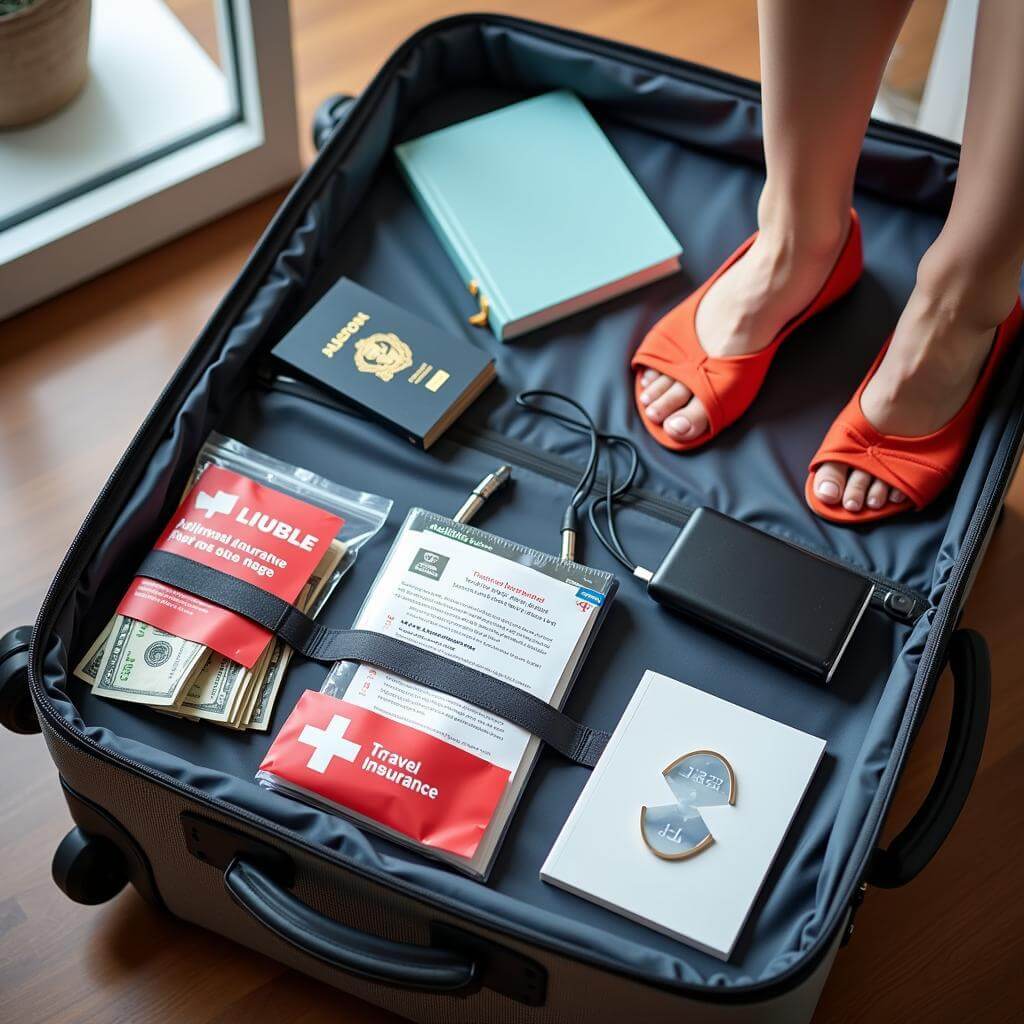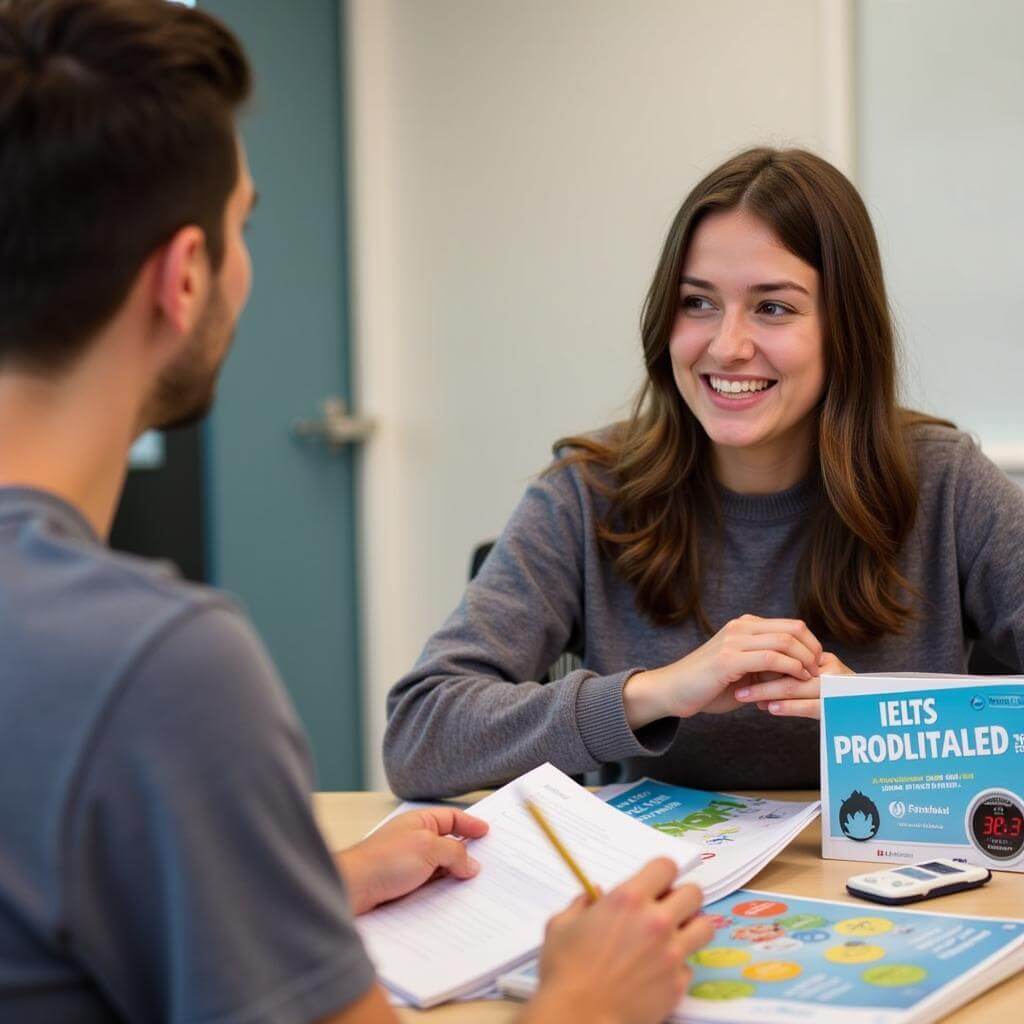The topic of describing an unexpected journey is a common theme in IELTS Speaking tests. It has appeared frequently in past exams and is likely to remain relevant in future tests. This topic allows examiners to assess candidates’ ability to narrate personal experiences, express emotions, and use appropriate vocabulary related to travel and problem-solving.
Nội dung bài viết
Part 1: Introduction and Interview
In this section, the examiner may ask general questions about travel and unexpected events. Here are some potential questions:
- Do you enjoy traveling?
- Have you ever had an unexpected experience while traveling?
- How do you usually plan your trips?
Let’s focus on question 2 and provide a sample answer:
Examiner: Have you ever had an unexpected experience while traveling?
Candidate (Band 7-8 response): Absolutely. I remember a time when I was traveling to Bangkok, and my flight got cancelled at the last minute due to a severe thunderstorm. It was quite frustrating at first, but it turned out to be a blessing in disguise. I ended up exploring the local area near the airport and discovered a charming little café where I had the most delicious Thai iced tea. This unexpected delay actually became one of the highlights of my trip.
Part 2: Long Turn
Here’s a sample cue card related to the topic:
Describe a trip you took that didn’t go as planned. You should say:
- Where you were going
- What happened unexpectedly
- How you dealt with the situation
- And explain how you felt about this experience
 IELTS Speaking Part 2 Cue Card: Unplanned Trip
IELTS Speaking Part 2 Cue Card: Unplanned Trip
Sample Answer (Band 8-9)
I’d like to talk about an unexpected turn of events during my trip to Bali last summer. I had meticulously planned a week-long vacation to this tropical paradise, eagerly anticipating days of sunbathing on pristine beaches and exploring ancient temples.
However, fate had other plans in store for me. Just two days into my trip, I received an urgent call from my travel agency informing me that a volcanic eruption was imminent, and all flights in and out of Bali were suspended indefinitely. This news came as a complete shock, throwing my carefully crafted itinerary into disarray.
Faced with this unforeseen challenge, I had to think on my feet. Instead of panicking, I decided to embrace the situation and make the most of it. I quickly researched alternative destinations within Indonesia that were unaffected by the volcanic activity. After considering my options, I booked a last-minute ferry to the neighboring island of Lombok.
This impromptu change of plans turned out to be a blessing in disguise. Lombok, with its untouched beaches and lush landscapes, offered a more authentic and less touristy experience than Bali. I found myself trekking through verdant rice terraces, snorkeling in crystal-clear waters, and interacting with locals in quaint fishing villages. These unexpected adventures far surpassed my original plans.
Reflecting on this experience, I felt a mixture of emotions. Initially, I was frustrated and anxious about the disruption to my carefully planned vacation. However, as I embraced the change and discovered the hidden gems of Lombok, I felt a sense of exhilaration and gratitude. This unplanned detour taught me the value of flexibility and spontaneity in travel. It reinforced the idea that sometimes the most memorable experiences are those we don’t plan for.
In hindsight, I’m thankful for this unexpected turn of events. It not only broadened my horizons but also instilled in me a newfound appreciation for the unpredictability of travel. This experience has fundamentally changed my approach to planning trips, making me more open to embracing the unknown and finding joy in unexpected adventures.
Follow-up Questions
- How did this experience change your approach to travel planning?
- What advice would you give to someone facing a similar situation while traveling?
Sample answer for question 1 (Band 8-9):
This experience was truly eye-opening and has significantly altered my approach to travel planning. While I still believe in having a general itinerary, I now leave room for spontaneity and unexpected detours. I’ve learned to be more flexible and adaptable, understanding that some of the most enriching experiences can come from unplanned adventures. Now, I always research alternative destinations or activities in advance, just in case my original plans fall through. Moreover, I’ve started to embrace the concept of “slow travel,” allowing myself more time in each location to truly immerse in the local culture and be open to serendipitous encounters. This shift in mindset has made my travels more enjoyable and less stressful, as I’m no longer fixated on sticking to a rigid schedule.
Part 3: Two-way Discussion
Examiner: How do you think people can best prepare for unexpected events while traveling?
Candidate (Band 8-9 response): Preparing for the unexpected while traveling involves a multi-faceted approach. Firstly, it’s crucial to have comprehensive travel insurance that covers a wide range of scenarios, including trip cancellations, medical emergencies, and lost luggage. This provides a financial safety net and peace of mind.
Equally important is maintaining a flexible mindset. Travelers should be prepared to adapt their plans at short notice, which might mean having a backup itinerary or researching alternative destinations. It’s also wise to keep some extra funds aside for unforeseen expenses.
In terms of practical preparations, I believe in the importance of thorough research about the destination, including potential risks or common issues travelers might face. This could involve understanding the local climate, political situation, and cultural norms.
Additionally, staying connected is crucial in today’s digital age. Having a reliable means of communication, such as an international SIM card or portable Wi-Fi device, can be invaluable in emergencies.
Lastly, I think it’s beneficial to develop problem-solving skills and cultivate a sense of adventure. This emotional preparedness can turn potentially stressful situations into opportunities for growth and unique experiences.
 Traveler preparing for unexpected events
Traveler preparing for unexpected events
Key Vocabulary and Phrases for High Scores
-
Meticulously planned /məˈtɪkjələsli plænd/ (adv. + adj.): Carefully and precisely planned
Example: I had meticulously planned every detail of our European tour. -
Throw into disarray /θroʊ ˈɪntə dɪsəˈreɪ/ (idiom): To cause confusion or disorder
Example: The sudden change in weather threw our outdoor event into disarray. -
Think on one’s feet /θɪŋk ɒn wʌnz fiːt/ (idiom): To think and react quickly in a difficult situation
Example: As a tour guide, you often need to think on your feet when unexpected issues arise. -
Blessing in disguise /ˈblesɪŋ ɪn dɪsˈɡaɪz/ (idiom): Something that seems bad at first but results in something good
Example: Missing our flight turned out to be a blessing in disguise as we discovered a charming local festival. -
Embrace the unknown /ɪmˈbreɪs ðə ʌnˈnoʊn/ (phrase): To accept or welcome new and unfamiliar experiences
Example: Part of the joy of traveling is learning to embrace the unknown. -
Serendipitous encounters /ˌserənˈdɪpɪtəs ɪnˈkaʊntərz/ (adj. + noun): Fortunate discoveries made by accident
Example: Some of my most memorable travel experiences have been serendipitous encounters with locals.
Examiner’s Advice
To achieve a high score in the IELTS Speaking test, particularly when describing an unplanned trip:
-
Use a variety of vocabulary and avoid repetition. Incorporate idiomatic expressions and advanced vocabulary naturally.
-
Develop your answers fully, providing specific examples and personal experiences to support your points.
-
Maintain fluency by speaking at a natural pace, using appropriate linking words and phrases to connect your ideas smoothly.
-
Demonstrate your ability to use a range of grammatical structures accurately, including complex sentences.
-
Show your capacity to discuss abstract ideas, especially in Part 3, by providing thoughtful and well-developed responses.
-
Practice narrating stories and describing experiences in detail, focusing on expressing your emotions and reactions to events.
-
Work on your pronunciation, including intonation and stress, to ensure clear communication throughout the test.
 IELTS Speaking Test Preparation
IELTS Speaking Test Preparation
Remember, the key to success in the IELTS Speaking test is not just about having a wide vocabulary or perfect grammar, but also about communicating your ideas effectively and engaging with the examiner in a natural, confident manner.


